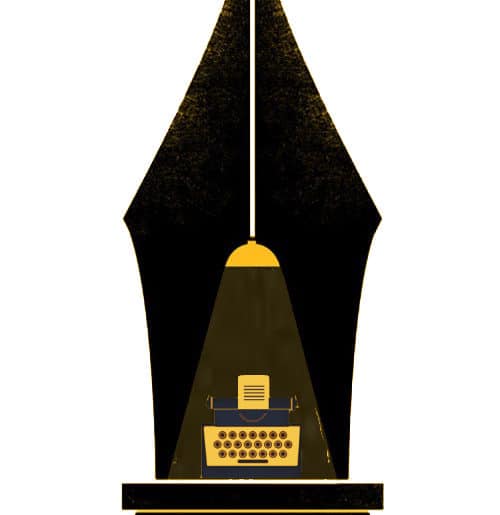As EVM machine buttons in colleges are deciding the fate of the politics of our varsity, it is time to wonder why for a Varsity as politically aware as ours, we choose to stay aloof from our own elections.
The University of Delhi (DU) and the Delhi University Students’ Union (DUSU) elections are the epitome of what student politics in our country looks like. DUSU politics is an extension of national politics. Money and muscle power sway results, caste matters much more than we would like to believe, women are horribly underrepresented, freebies are secretly welcome, and just like national politics, the privileged do not bother turning up to vote. Like a 70s Bollywood film, DUSU politics has it all
– money, muscle power, a protagonist, and an army of self-righteous men, supporting their leader as if their life depends on it.
Elections in DU are a stepping stone to national politics. Becoming a DUSU office-bearer is the equivalent of winning a wild-card entry into the more significant horizon of state or national level politics. There is analogy, used in the varsity on and off, that there are 70 MLAs and 7 MPs in Delhi, but only one Delhi University Students’ Union President. The result of these elections result in a victory march of sorts, surrounded by supporters and the kind of mad frenzy that revolves in the air, highlights exactly how powerful this position is. As the winners climb on the Vivekananda statue in the Faculty of Arts, that moment signifies lakhs of rupees worth of campaigning, thousands of supporters, hundreds of cars that blocked the campus roads, and almost one year of unofficial lobbying.
When we try to understand why we don’t vote in DUSU elections, we need to understand why we don’t need to vote, in the first place. We don’t feel the need to stand in a two-hour long queue to press a button or understand which political party is offering subsidised canteen food v/s which is offering hostel facilities because we simply do not care and our day-to-day functioning is not affected by it. By virtue of how Delhi University functions-on the basis of high cut-offs- a fair share of its student body, especially in top ranking colleges hails from your stereotypical, private, CBSE/ISC school background where they had the luxury, guidance, and resources to chase a number as unrealistic as 98%. These students, who hail from privileged, upper-middle class families, need not bother about politics, just the way privileged individuals almost always do not care about politics because they’re above it, at least in principle. Schemes brought out for the majority aren’t applicable to them.
The power of one vote is cliché, to the point that the concept has stopped moving us. I will not urge you to exercise your democratic right by turning up to vote because every vote counts. I am sure you have heard that line before. But if you are one of the people who know by virtue of their birth, have their luxury to dissociate from politics, who are not plagued by the fear that the wrongly elected representatives could negatively impact your lives. If you are confident that with time, your life will continue as is, irrespective of how the results are, then I would tell you that you are extremely privileged.To have the luxury of not worrying about who would win, because you know you would be alright, is the primary symptom of being privileged.
The general student body of DU is woke. Students here volunteer,protest, resist, and take pride in fighting their battles. Therefore, the kind of hypocritical elitism they show towards DUSU politics is appalling. As we snub and stay complacent towards DU politics, another election season with its blatant caste-ism, sexism, and “might is right” attitude comes to a close. DUSU politics isn’t ugly because it has inherently been so, it is ugly because we refuse to engage in it. We have given bigger players in national politics the free reign to turn DUSU into their own little game of tennis, with the ball being in either sides of the court at all times. By refusing to engage with it, we have lost the right to claim to be above it. As you sit today, probably in a classroom or cafeteria of your college where you pursue a subsidised education, I would urge you to go ahead and vote. DUSU politics was never too ugly, we just neglected what was ours for too long.
Kinjal Pandey
[email protected]










